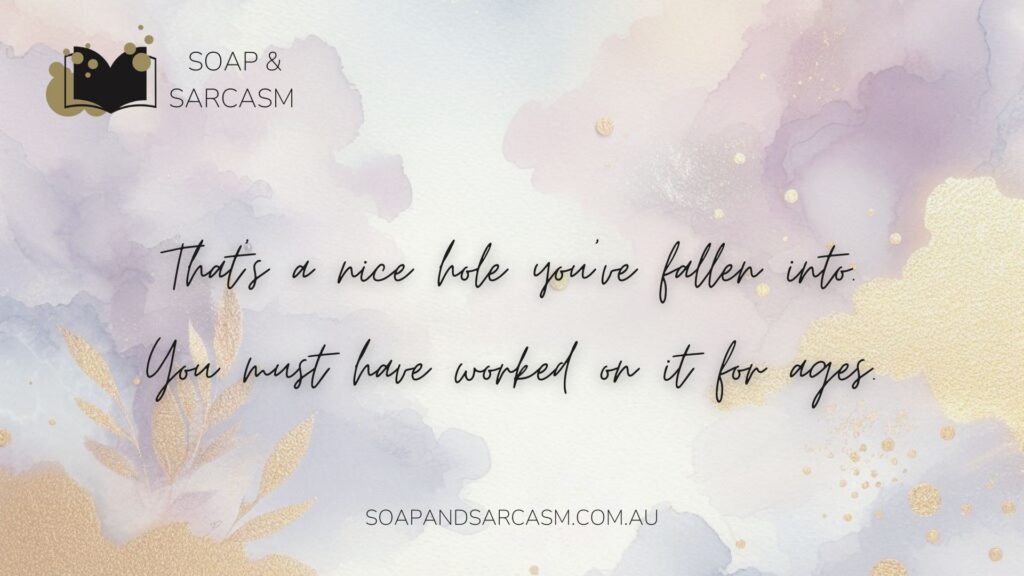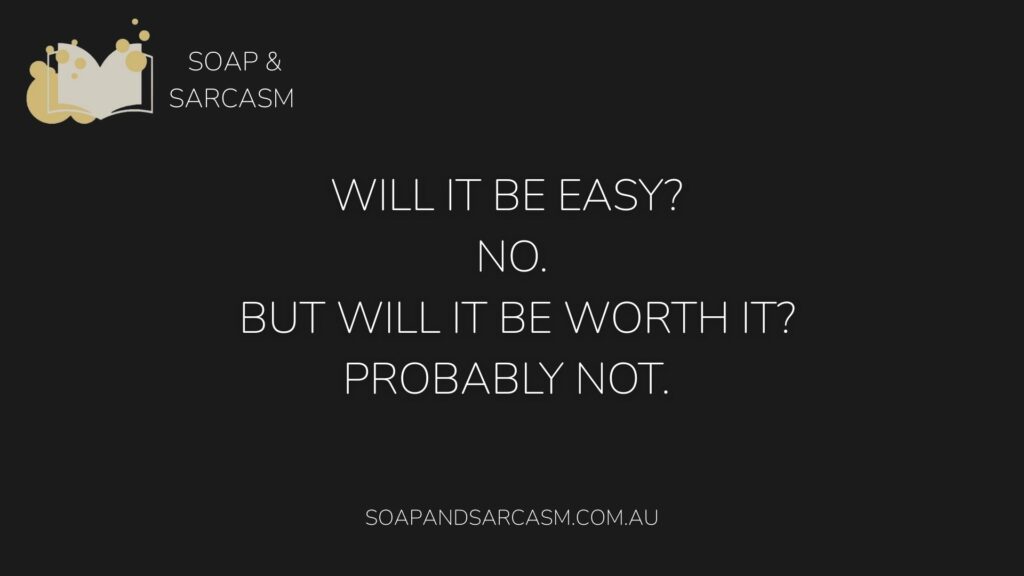The Psychological field of personality studies is something I find fascinating, and is a topic I enjoy thinking about. But I have to admit, the first time I ever did a personality test, I was genuinely offended by the result…
Which is probably not a good sign.
But it does make me wonder, is it truly possible to have a bad personality?
Before I dive into that though, lets look at a few basic introductory questions first.

What is personality?
The basic textbook answer to this question goes something like this:
“Personality is the set of enduring traits, patterns or characteristics that influence a person’s feelings, thoughts and behaviours.”
That’s the general answer. Beyond that there isn’t a lot that psychologists agree on.
There are various theories and models that describe personality, from type models, to trait models to biological models and everything in between.
And no one can agree on exactly why people have the personalities they do, or where they come from. But again, the general consensus is that personality is influenced both by your genetics and your environment. What’s more personality is generally stable and won’t change much over their lifetime. At least that’s the going theory.
Now I wont bore you on all the different theories. But the interesting part comes with trying to measure and compare personalities.
How do you measure personality?
Basically the only thing Psychologists can agree on is that personality is complicated.
People have come up with all sorts of ways to measure personality.
From Rorschach’s Inkblot test, The Big Five personality traits, and Eysenck’s Personality Questionnaire, there are all sorts of tests and measures psychologists can use.
There are also other tests, more commonly known, that you’re less likely to hear a psychologist mention, but that get thrown around a lot in other circles. Such as: The Enneagram model, the Myer Briggs personality test, the 16 Personality Types, and whatever strange things you find on Buzzfeed.
Of all the different tests out there the one I’m talking about today, is the Big Five personality traits, otherwise known as the five-factor model.
This test works on a trait model, listing the five different traits that describe someone’s personality, each with their own different aspects and facets. The traits in this model are like a spectrum, each person has some amount of each trait, scored out of 100.
Possibly I’m not explaining this very well…. Here are some resources if you’re confused.
Though this test is the one favoured by many psychologists, and is known to be reliable, there are different versions of this test around and your results may differ depending on which version of the test you’ve done. Like it said, it’s complicated.
I’m not actually an expert in any of this, so be warned, I may get some of the following information horribly wrong…

What are The Big Five personality traits?
The Big Five personality traits, often remembered by the acronym OCEAN are as follows.
- Openness to experience
- Conscientiousness
- Extraversion
- Agreeableness
- Neuroticism
Each trait is scored out a 100 and this number is a percentile. So if you’ve got 15/100 for neuroticism, not only would that be considered “low”, but it also means that if there were 100 people in the room, only 15 of them would be less neurotic than you.
Each trait describes a different thing.
Openness to experience describes, not only a person’s willingness to try new things, but also things like their imagination, curiosity, how much they like art, adventure and engaging in new ideas. This is the aspect most associated with creativity.
Conscientiousness is mostly about how organised someone is, how self controlled or disciplined they are, their attention to detail and things like how likely they are to follow rules and instructions. This trait is most often associated with success at work or in business and helps people get things done.
Extraversion describes a person’s sociability, boldness, energy, and their desire to seek out company of others. Someone high in extraversion is known as a extravert, and someone low in extraversion may be known as an introvert. This is also the trait most associated with positive emotions. In theory, the higher the extraversion, the more likely you are to be a happy, positive person.
Agreeableness is the trait that describes things like empathy, compassion, and how likely you are to be cooperative with others.
Neuroticism is mostly about emotional instability, a person’s tendency to experience anxiety, depression, irritability and other negative emotions.
That’s the short version anyway. There is a lot of information out there about this model, here is some information about this if you want to know more.
Why measure personality?
There are a number of reasons why someone might measure personality, apart from the fact that it’s just fascinating…
- Growth and self improvement
- Testing suitable candidates for an employment position
- Help improve relationships.
- Assist with understanding team dynamics
- Medical and science reasons
etc.
This personality test in particular is quite good in helping estimate likely behaviour as it’s so much based on statics and collected data, and while it isn’t perfect, there are a number of things it can tell you.
If for example you know you’re high in agreeableness, and are about to enter into a challenging relationship, that might involve conflict or negotiation, like a discussion about work assignments with colleges e.g, if you are aware of your tendencies to be more agreeable, it can help you in controlling your own behaviour. E.g. Prevent yourself from ending up like a doormat and just agreeing to take on all the worst jobs that nobody else wants.
Or if you know you’re high in neuroticsm and more likely to get experience depression and anxiety you can be better prepared to monitor your moods and well being, helping improve your mental health.
But this leads me to ask the question: Is there such as thing as a bad personality?

Are there bad personality traits?
Now, there are actual personality disorders, and those are serious problems to many people, but that’s not what I’m talking about. I’m talking about ‘normal’ people, who aren’t diagnosed with anything, but who just might fall below certain invisible lines that society sometimes likes to draw.
Is it possible to have a ‘bad personality’?
The politically correct answer to this question is probably ‘No’.
It isn’t hard to imagine what a bad personality might look like, there might even have been someone specific come to mind… Certainly bad behvaiour exsists. But are there any personality traits that are bad in and of themselves?
Your personality is your personality. You’re certainly not ‘bad’ just because your brain tends to work in certain ways. The practical answer to this question however… probably varies depending on your perspective.
While personalities don’t determine behaviour, they do influence it. What’s more different personalities are good at different things.
If for example, you wanted to be a bright outgoing and bold person, mastering the art of sales, customer service and social manoeuvring, but you have low extraversion… there may be some challenges you have to work around.
But that isn’t quite what I’m talking about either.
If you ask the internet, or someone wise and all-knowing like your mother, for example, it probably won’t be very difficult to come up with a list of ‘bad’ personality traits. And while that depends a whole lot on context and culture… that list might look something like the following:
- Dishonesty
- Laziness
- Stubbornness
- Impulsiveness
- Aggressiveness
- Callousness
- Selfishness
- Pessimism
etc.
Now, like I said, this is heavily dependent on context, things like stubbornness can be persistence when looked at in another light. Traits like impulsiveness can be lots of fun on a weekend, but may cause problems in more structured places, like work meetings… so much of this depends on your perspective, and the point of the view of the culture you’re in.
But it does seem like, in today’s culture, (I’m Australian for reference) that certain traits, are ‘worse’ than others. And if a bad personality does exsist, it seems like the extremes of the Big Five traits are where we run into the most problems.
The problematic extremes
It’s not hard to map some of the above list of ‘bad’ traits onto the extremes of the big five traits.
Low Conscientiousness = laziness.
High extraversion = impulsiveness
Low agreeableness = selfishness and callousness.
Etc.
There are upsides and downsides to every personality trait and no one personality is better than any others, depending on how its used. However it seems that the closer you get the ends of each spectrum, the more problematic they are.
Agreeableness
Someone very low in agreeableness might be tend toward being selfish, and callous, unkind and uncaring. Their extremely disagreeable countenance might make relationships or working with others extremely difficult.
On the other hand, someone very high in agreeableness, would likewise have problems. They might be at risk of being a doormat to those around them, over accommodating, not standing up for themselves or saying no when they need to.
Conscientiousness
Another problematic one is conscientiousness.
If someone is very low in conscientiousness, they may have a risk of being lazy, disorganised and unreliable. Not doing the things they need to do, and causing problems for, not only themselves, but also other people.
If someone’s conscientiousness is very high however, that’s when you get a perfectionist. They may tend toward the inflexible, be a workaholic or be over demanding of those around them.
Neuroticism
Having high neuroticism seems like bad news no matter which way you slice it. Who wants to be anxious, emotionally unstable, moody and depressed? Not me.
But in some cases having very low neuroticism can cause problems too, potentially leading someone to be overly calm or complacent when they should feel bad, being emotionally flat, or not understanding the emotions of those around them.
Extraversion
Likewise, if this is related to positive emotions, you’d think the more the merrier, right?
But not so… someone who is very high in extraversion can be too impulsive, attention seeking and risk taking. Which can cause plenty of problems of it’s own.
While being low in extraversion might give you hermit tendencies, potentially impacting not only your relationships, and communication abilities, but also making you less likely to experience positive emotions.
Openness to experience
This one seems at first glance to be fairly benign…
Very low openness might make you unimaginative, close-minded and resistant to change and new ideas. While this can cause some issues I’m sure, it doesn’t seem like as big a deal to me as the others.
Similarly having high openness seems less problematic, baring a risk of being mildly un-tethered to reality and apart from other things… weird, there seems to be little danger here…
Apart from one study I skimmed through that found an alarming connection with openness to experience and madness…. Fascinating.
… So it seems to me, if there is such a thing as a ‘bad’ personality, it is more likely to exist on the extreme ends of the spectrums.

What if you do have a bad personality?
What if you do have a bad personality, or share some traits that you really wish you didn’t?
What happens then?
I mentioned at the start, that I was offended when I got my results back.
Well its true.
Without boring you with the details, lets just say, I tend towards the low end on quite a few scales, the extremely low end in some cases. By some standards, I do have a bad personality.
My extraversion score? 1/100, on that first test. I did it again a few years later and it went up to 3. A whole 3/100.
Look at that progress.
Sometimes it goes up a bit higher on some other versions of tests I’ve tried, but usually it’s pretty low. I am a certified hermit.
Now… whether a personality is bad or not, is usually subjective. Some people might be mortified to get a score that low in extraversion. And sure maybe it means that I’m not an overly enthusiastic person, I tend to be low on positive emotions, and I’m certainly not a social butterfly.
I’m a hermit. I’m basically allergic to social interaction. You put me in a public place and it’s like putting ice cream in the sun, you can practically see me start to melt.
But I actually like this aspect of my personality. When I saw that number 1/100, I may have actually punched the air I was so excited. I like being a hermit. You can drag me out of my cave when I’m dead, and not a moment before.
But it does have some downsides.
As much as I like hiding in my cave, spending too much time alone actually isn’t good for me. I do need some social interaction every now and then or I go a bit weird. I also get lonely, my bar for getting lonely is probably a lot different from other people’s, but sometimes when I feel it coming on and I know I haven’t spoken to a real person for a while, I occasionally have to force myself to interact with a real person for longer than like… 30 seconds.
On the flip side, if I know I have to go to some place or event where there will be other people and social interaction, I can spend some time to plan and prepare to tackle challenges safely.
What’s more, since extraversion is related to positive emotions, and my score leans on the lower side, I know I have to be careful sometimes in monitoring the state of my mental health… especially when you take into consideration that my Neuroticism was a whopping 98/100.
You read that right. 1/100 for positive emotion, and 98/100 for negative emotion… Good grief that looks bad.
This part of my personality I’m less happy with, but I can’t exactly deny it. I’m a moody anxious mess much of the time.
However, since I first got that result, I’ve been working on some things, changing some habits and thought patterns, and that number actually went down a few years later, sitting pretty at 86/100. It gets down to as low 69 on other test versions, but much like with the extraversion, the pattern is pretty clear.
I’m not a positive person.
But honestly? that’s fine. Not everyone needs to be an optimist, and pessimists can have some useful skills, like risk management…
But that’s not as bad as it gets.
I’m not a hard worker either according to every conscientiousness score I’ve ever received, which usually sits somewhere between 4-15.
Which, if I listen to the statistics, means I’m not likely to ever be promoted at work, or to succeed academicially… and I might end up in jail…
You may be able to see why I was upset.
However… over time my bad personality has actually grown on me, which might be weird to say.
There are upsides to having a ‘bad’ persobnality.
For example… I do tend towards the lazy, and it’s something that I need to watch out for.
But with these traits, I’ve also learned how to be efficient. Because once I decide to do something, I want to get it done with as least effort as possible.
It all depends on your perspective, and how you use it.
Bad personality, in conclusion
In the end, these traits and aspects to your personality, are all just different tools in your toolbox.
And it mostly depends on the context as to if something is considered ‘bad’ or not.
A hammer is bad at undoing screws, and you won’t have the easiest time putting in nails with a screwdriver.
That said, if you sit on the ends of any trait spectrum, beware that your highly specialised personality might have downsides, and it’s useful to be aware of these.
Speaking from experience, it might take extra time to get used to one thing or other, if you didn’t know that about yourself, or if the results weren’t what you were expecting, heck you might even have answered the questions wrong… (Can you answer a personality test wrong? Why yes. Yes you can.)
But at the end of the day, these tests don’t define who you are, or your behaviour. They’re just numbers and fancy science guess work. Your conscientiousness score doesn’t define your academic results, or your job success. Your low extraversion score doesn’t mean you can’t be really good at customer service or that you won’t ever have friends. Your low agreeableness score doesn’t mean you can’t be a nice person… you just might have to remind yourself to see things from other people’s perspectives more often. The numbers themselves don’t change anything. It’s just a way to measure your natural tendencies.
It is, however, all valuable insight, and knowing these natural tendencies can help you navigate your life, work, and relationships, and all manner of other things.
Curious about your personality?
CLICK HERE to test your personality.
17 Funny Unenthusiastic Sayings For People Struggling Through Life Right Now
Sometimes in life there are times when even the low bar feels too high to…
21 Reasons Why You Should Quit While You’re Ahead
Do you have a dream you’re trying to achieve? A project you’re trying to finish?…
Is there such a thing as a bad personality?
The Psychological field of personality studies is something I find fascinating, and is a topic…
19 funny sayings: Start your day right with Inspirational sarcasm
Need some Monday motivation? Need some funny inspiration? Looking for some pretty posters to stick…
I hate Enthusiasm. Is it really for every one?
Understanding your lack of enthusiasm: What is enthusiasm? And why do some of us have…
15 sarcastic sayings to make you laugh at work
Brighten up your workday with some good old fashioned sarcasm. Some days you just feel…
Would you like to stay in touch?
Get the latest news, updates and offers!






